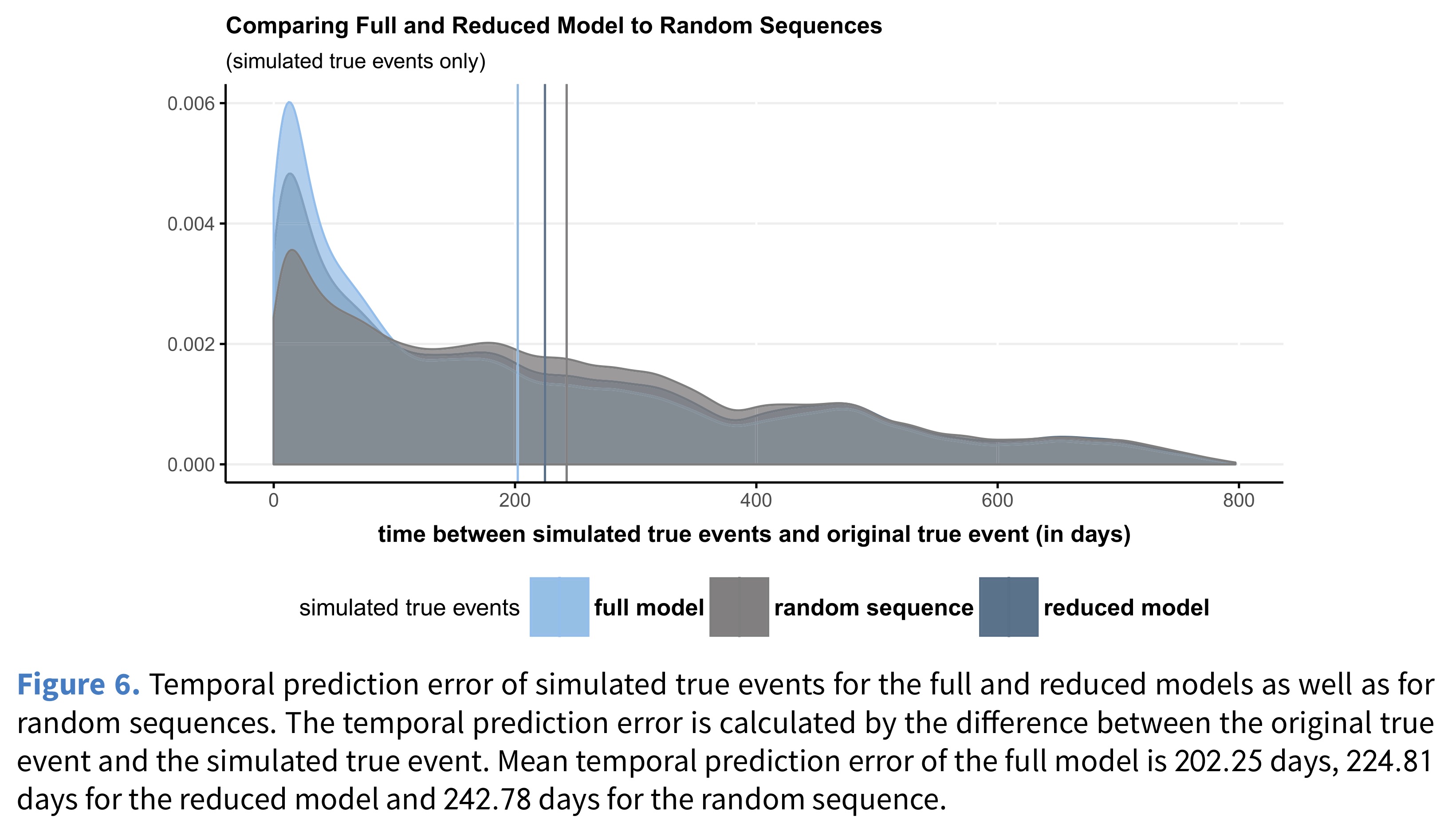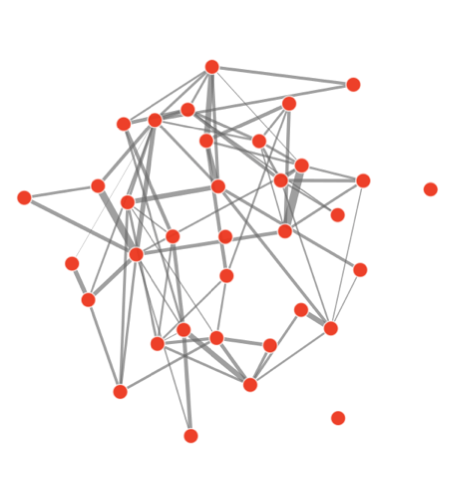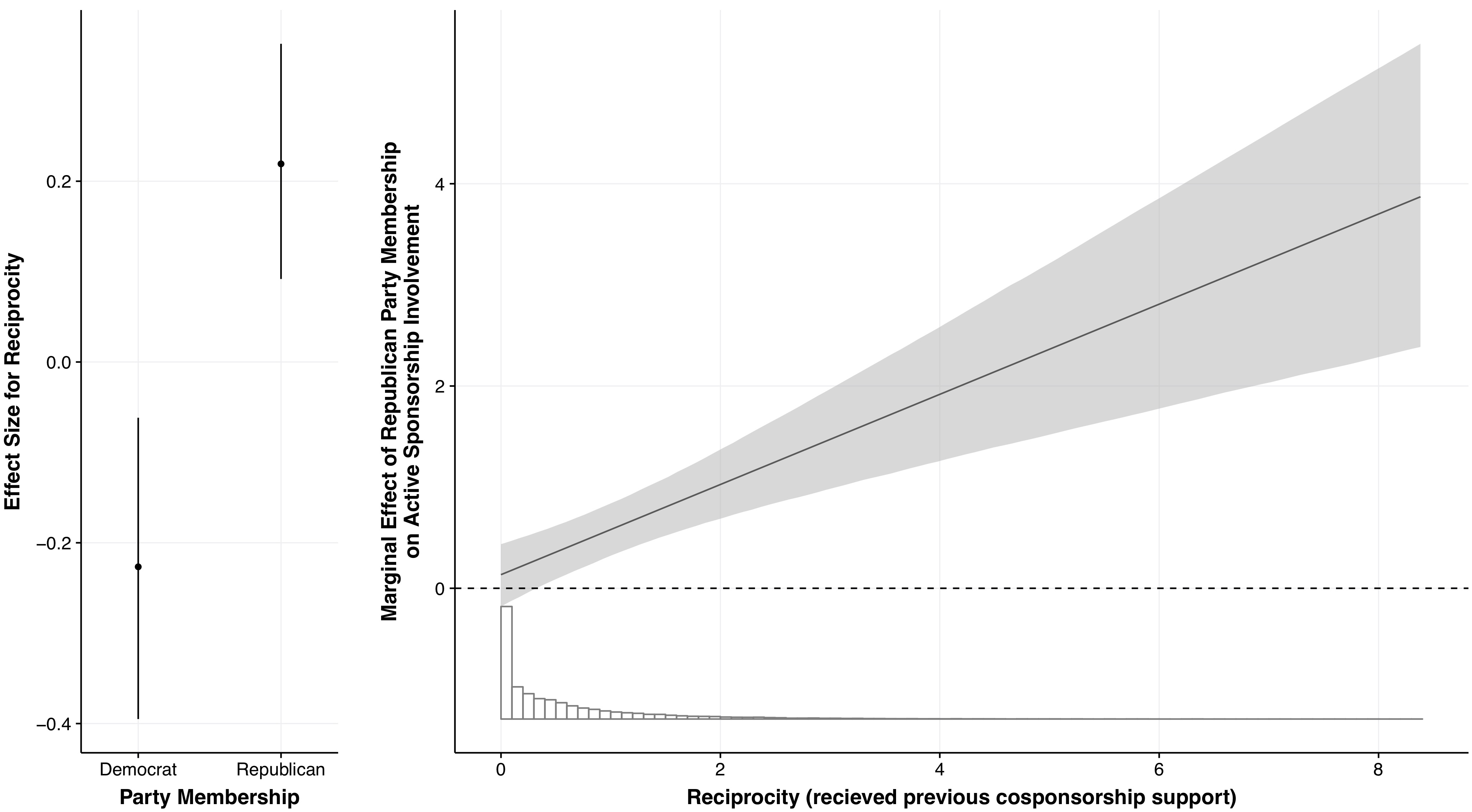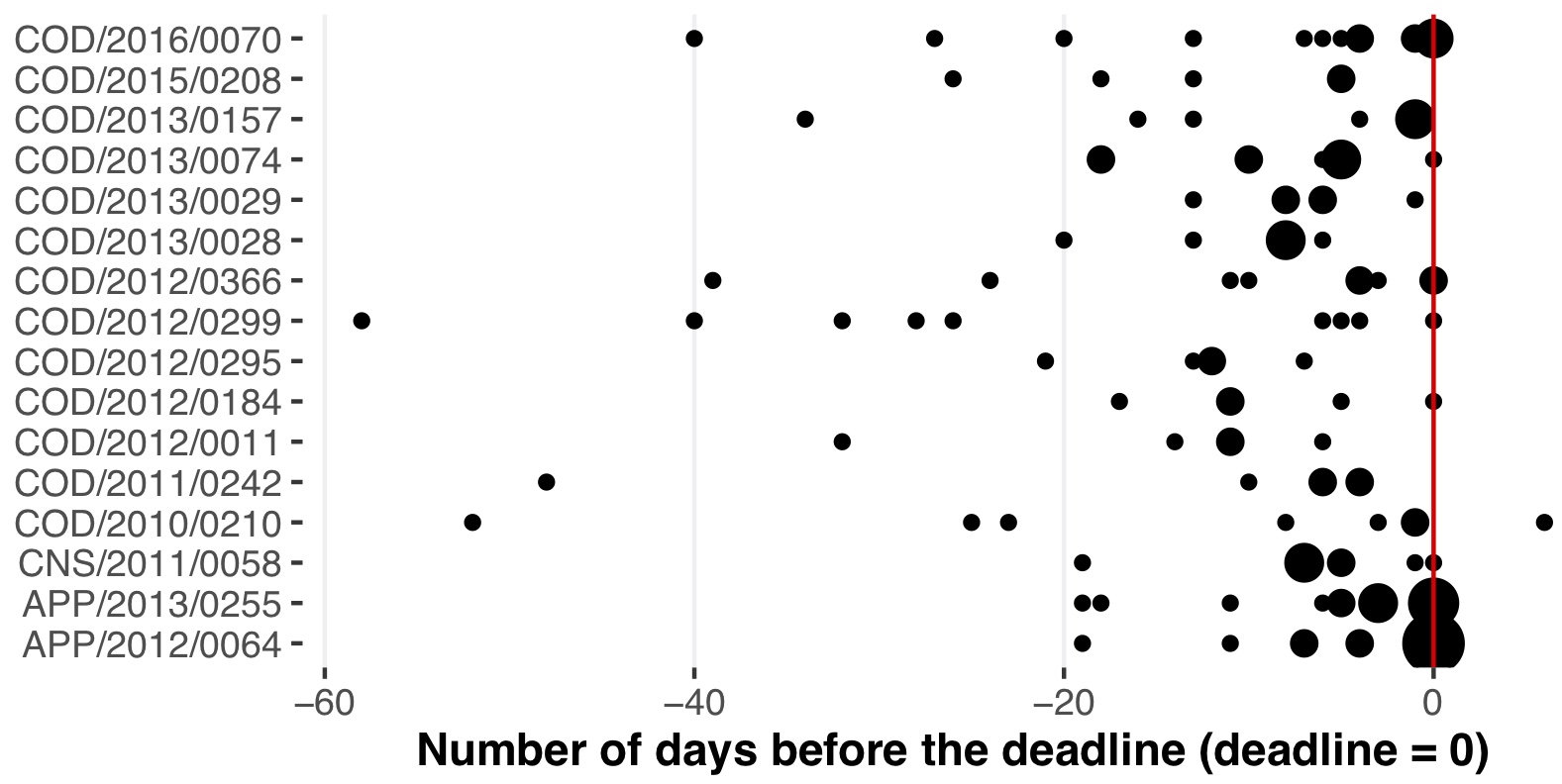Dr. Laurence Brandenberger
I study legislative behavior and parliamentary networks. I am particularly interested in the temporal dynamics of political actors working together, for instance looking at how long it takes for a member of parliament to reciprocate a favor by a colleague. Furthermore, I study how political actors change their political positions over time and influence each other.
As a quantitative social scientist, I use Relational Event Models (REMs), Exponential Random Graph Models (ERGMs) and temporal variations thereof (so-called TERGMs or BTERGMs) and conventional regressions for my analyses.
Prior to starting at the Chair of Systems Design, a received a PhD in Political Science from the University of Bern and a Master's degree in Sociology from the University of Bern.
CV» |
|
|
Publications»
«Publications
Publications in


Predicting Network Events to Assess Goodness of Fit of Relational Event Models
|
[2019]
|
|
Brandenberger, Laurence
|
Political Analysis,
pages: 556-571,
volume: 27,
number: 4
|
more» «less
|
Abstract
Relational event models are becoming increasingly popular in modeling temporal dynamics of social networks. Due to their nature of combining survival analysis with network model terms, standard methods of assessing model fit are not suitable to determine if the models are specified sufficiently to prevent biased estimates. This paper tackles this problem by presenting a simple procedure for model-based simulations of relational events. Predictions are made based on survival probabilities and can be used to simulate new event sequences. Comparing these simulated event sequences to the original event sequence allows for in depth model comparisons (including parameter as well as model specifications) and testing of whether the model can replicate network characteristics sufficiently to allow for unbiased estimates.


Quantifying Triadic Closure in Multi-Edge Social Networks
|
[2019]
|
|
Brandenberger, Laurence;
Casiraghi, Giona;
Nanumyan, Vahan;
Schweitzer, Frank
|
ASONAM '19: Proceedings of the 2019 IEEE/ACM International Conference on Advances in Social Networks Analysis and Mining
|
more» «less
|
Abstract
Multi-edge networks capture repeated interactions between individuals. In social networks, such edges often form closed triangles, or triads. Standard approaches to measure this triadic closure, however, fail for multi-edge networks, because they do not consider that triads can be formed by edges of different multiplicity. We propose a novel measure of triadic closure for multi-edge networks of social interactions based on a shared partner statistic. We demonstrate that our operalization is able to detect meaningful closure in synthetic and empirical multi-edge networks, where common approaches fail. This is a cornerstone in driving inferential network analyses from the analysis of binary networks towards the analyses of multi-edge and weighted networks, which offer a more realistic representation of social interactions and relations.


Trading Favors – Examining the Temporal Dynamics of Reciprocity in Congressional Collaborations Using Relational Event Models
|
[2018]
|
|
Brandenberger, Laurence
|
Social Networks,
pages: 238–253,
volume: 54
|
more» «less
|
Abstract
The norm of reciprocity shapes social interactions over time and should therefore be analyzed using longitudinal designs. This paper examines the temporal dynamics of reciprocity in the setting of legislative cosponsorship in the 113th U.S. Congress (2013–2015). Rather than aggregating cosponsoring events into network snapshots, cosponsoring events are ordered in time and reflect an event sequence of members supporting bills at distinct points in time. The norm of reciprocity is tested to see if it affects (a) new collaboration clusters emerging over time or (b) the time-to-cosponsoring. Findings suggest that receiving cosponsoring support recently, leads to future collaborations. However, this finding holds only for Republican members of Congress. Furthermore, reciprocity demands do not expedite cosponsorship support and members do not react faster to favors they received, calling mitigating effects of reciprocity on collective action into question.


Networks and Social Influence in European Legislative Politics
|
[2018]
|
|
Malang, Thomas,;
Brandenberger, Laurence;
Leifeld, Philip
|
British Journal of Political Science,
pages: 1475 - 1498,
volume: 49,
number: 4
|
more» «less
|
Abstract
The Treaty of Lisbon strengthened the role of national parliaments in the European Union. It introduced an ‘early warning system’, granting parliamentary chambers the right to reject legislative proposals by the European Commission. Previous studies assumed independence between the decisions of parliaments to reject a legislative proposal. We apply recent advances in inferential network analysis and argue that parliamentary vetoes are better explained by conceptualizing parliaments’ veto actions as a temporal network. Network effects can be observed along the dimension of party families. Based on a new permutation approach, we find that parliaments with similar party majorities influence each other over the course of the decision period (‘social influence’), rather than basing their decisions independently on joint prior partisanship (‘selection’).
Talks»
«Talks
Talks
HONS 2020
[Sept. 17, 2020 - Sept. 17, 2020]
NetSci 2020
Introduction to Network Regression Models for multi-edge/weighted networks using the ghypernet-package in R
[Sept. 12, 2019]
Workshop hosted @ EUSN 2019 -- Zürich, Switzerland
Introduction to multi-edge network inference in R using the ghypernet-package
[Sept. 2, 2019]
Workshop @ Euro CSS 2019 -- Zürich, Switzerland
|








